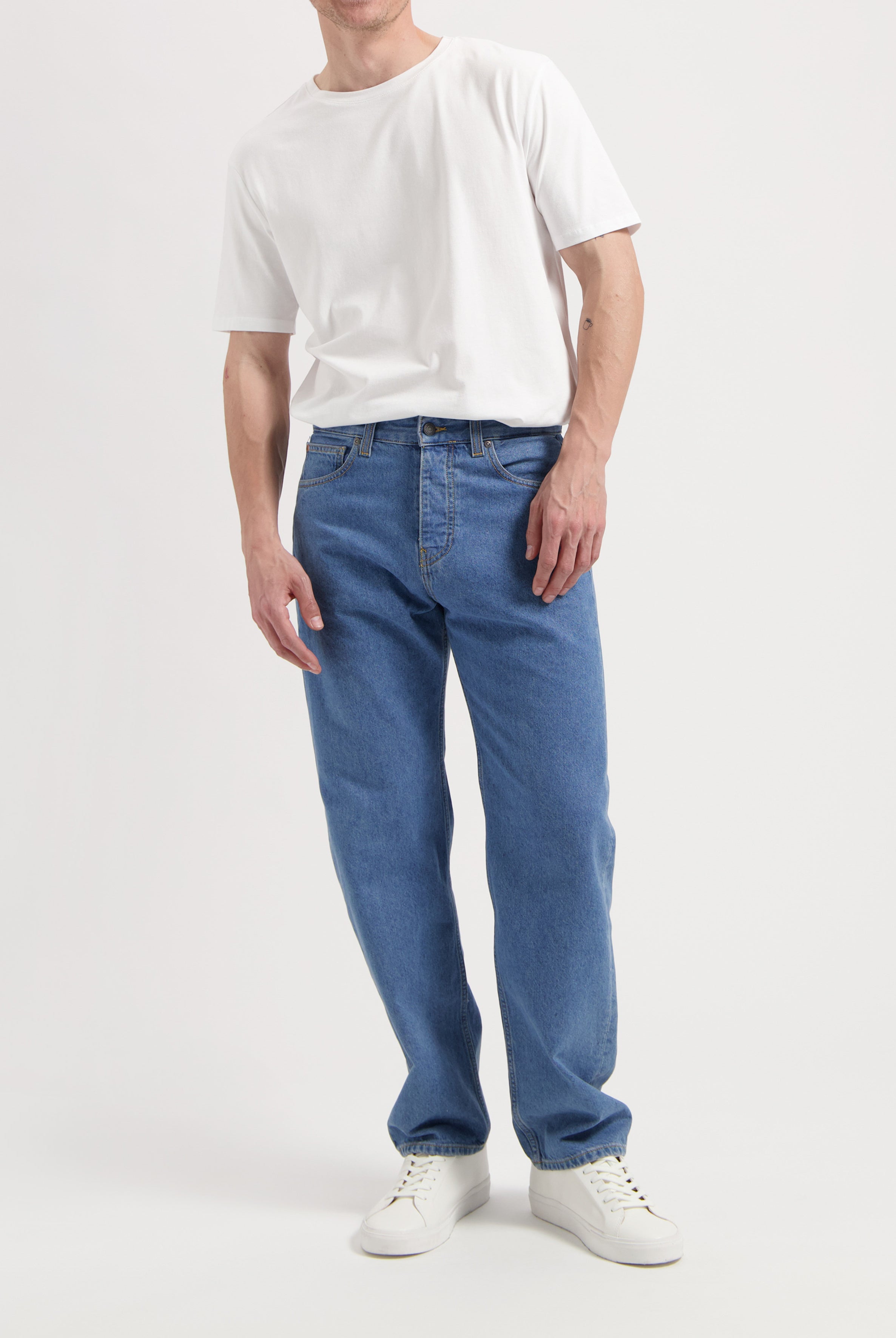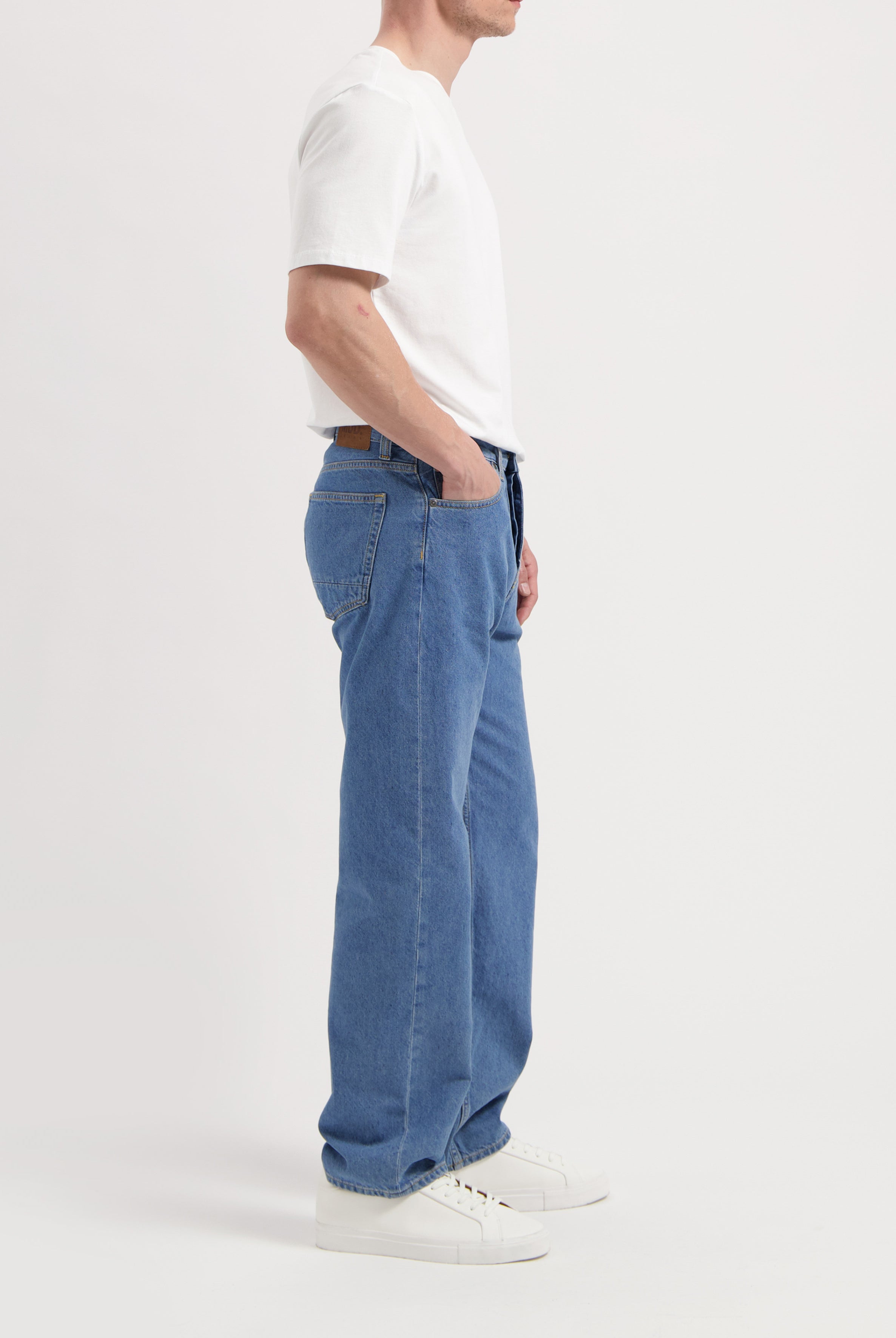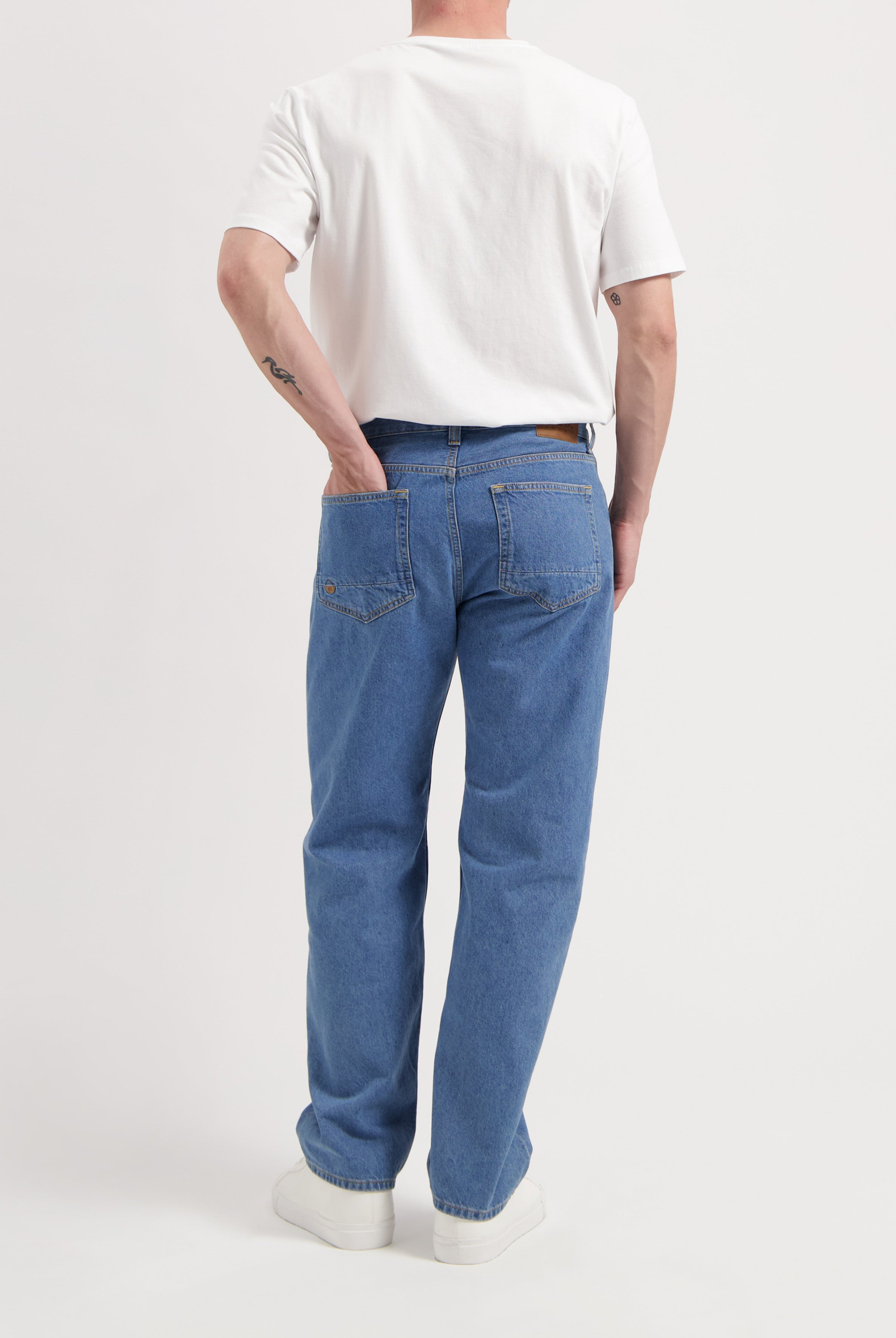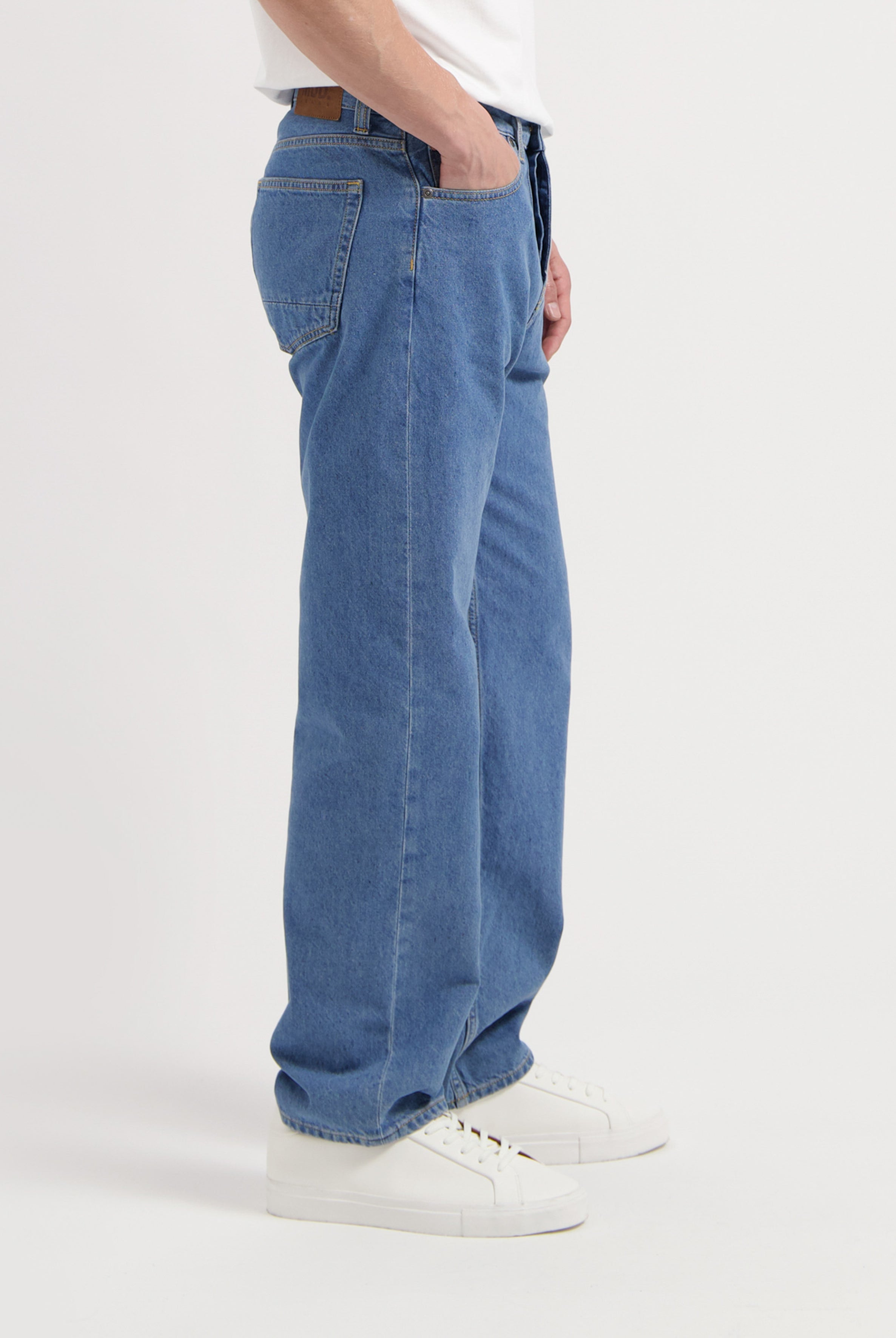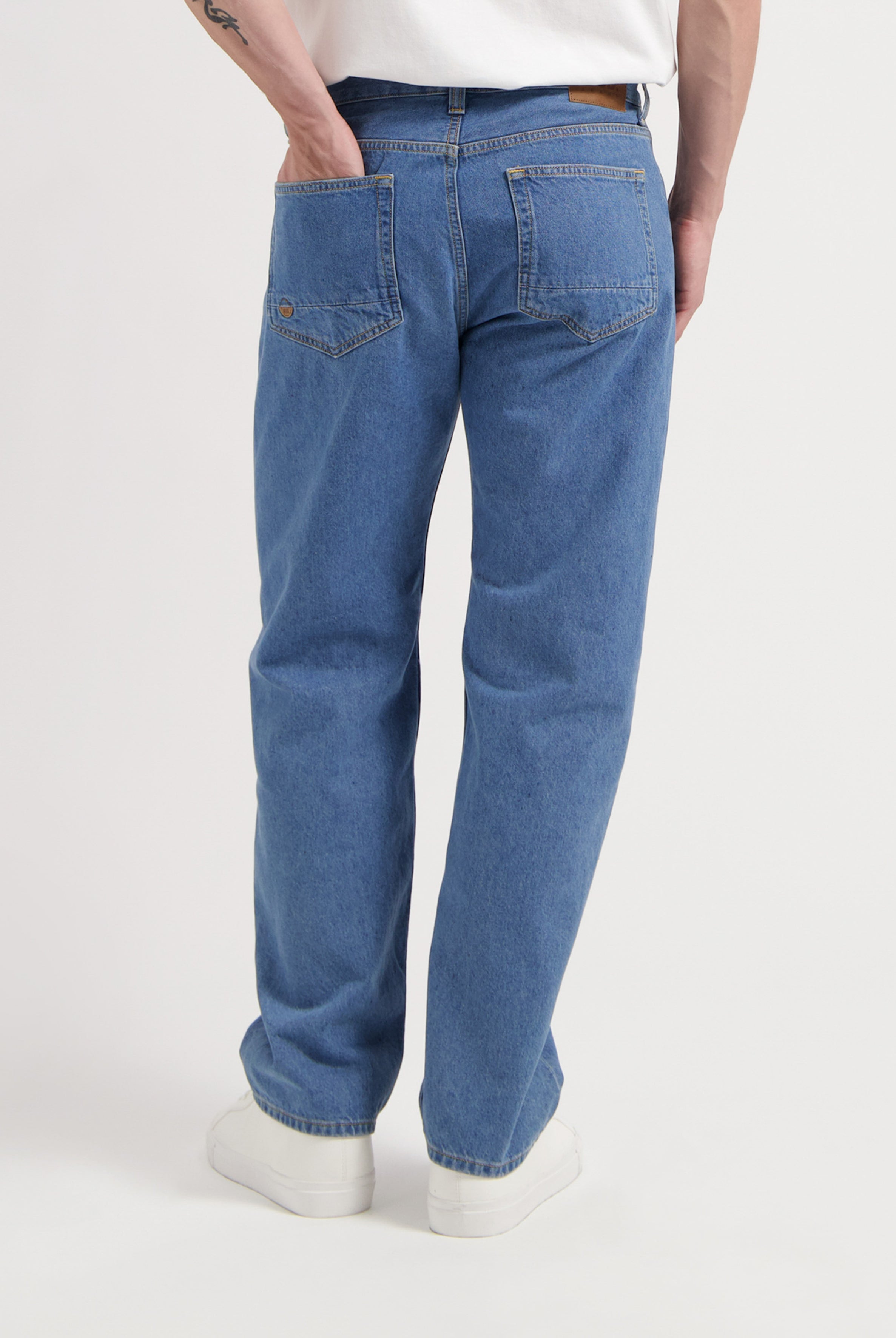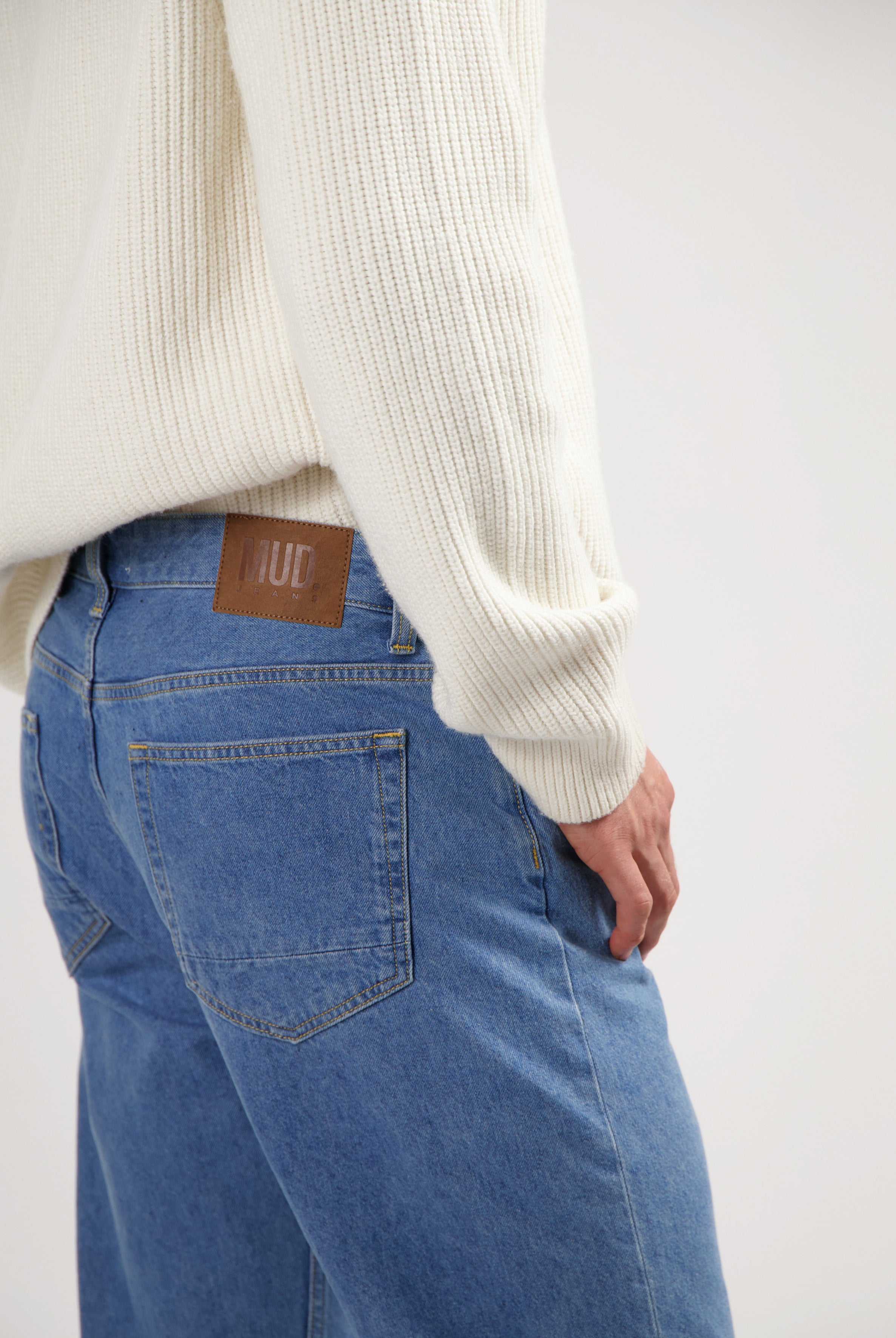[[ROW-INTRO]]
Last week MUD Jeans joined forces with Circle Economy and AMS to host a Circular Living Masterclass. Unsurprisingly the topic at hand was climate change and how to overcome it with circularity. [[ROW-INTRO-END]][[ROW-FULL-IMAGE]]

“This is the decade of action” - Ola Bakowska
She does not say this lightly, as what she means by this, is that time is running out to tackle the global climate crisis we are facing. The Circle Economies annual report shows we have already hit two vital mileposts for the planet. The planet has warmed by 1 degree and we are consuming more than 100 billion tons of material a year. Although alarming data, there is still hope, Ola and her team estimate that by using circular practices, we can cut down global emissions 39% of the current rate.
Ok, so what is circular?
It’s an answer to ‘business as usual’. It’s about maintaining the value of a product and repurposing the raw materials once thoroughly used.
The main sustainable practices consumers & companies can integrate into their lives:
- Repairs
- Stretching the lifetime of products
- Using recycled products or products that can be recycled
- Packaging matters, support innovative packaging solutions such as seaweed as alternatives
One of the key concepts that came from this Masterclass was that, in order to reduce our waste habits and build a better future, we as a society must rethink our ‘business model’.
[[ROW-FULL-IMAGE]]

[[ROW-FULL-IMAGE-END]]
Re-commerce (selling second hand products), upcycled products and rental are already seen to be gaining more attention among consumers and are a vital part of rethinking how we do business and how we consume as a society. At MUD Jeans we embody the values of circularity in every part of our business model. Not only are our jeans high quality to last the test of time, our denim is only cotton, with only a few models containing 2% elastane. This means they are completely recyclable and able to be repurposed into a new pair of jeans, the circle is complete.
Pro Tip: When looking for clothing our CSR manager Laura suggests looking for pieces made of a single material, as they are easier to recycle.
As Laura points out, as individuals, we have control over our purchase decisions and those decisions matter.
Other than purchasing good quality and sustainable items, the most sustainable option is to actually extend the life of the items you currently own by fixing them.
At MUD we not only offer repairs for our jeans, but also a vintage collection of used jeans, still in good condition, at a lower price point to further extend the life of the product.
[[ROW-FULL-IMAGE]]
 [[ROW-FULL-IMAGE-END]]
[[ROW-FULL-IMAGE-END]]
Looking to be sustainable with your own collection?
As CSR manager Laura noted ‘You have the power in your own closet’!
Have clothes you are no longer wearing? Give them a whole new life by selling them or swapping them with friends.
Now, the life of a product doesn’t last forever. Once it comes to the end of their road, collet and properly recycle them.
Joke from AMS institute spoke to us about the importance of circularity in cities.
As Joke points out, we are going through fast globalization in cities, with a big part of the planet’s population living in cities, but cities only accounting for around 2% of the land. She also mentions that two thirds of power usage is consumed in cities and that 70% of global carbon emissions are emitted in cities. The ironic part of this all, is that the people living in cities are the ones who are and will feel the consequences of climate change first. This is because many cities are in big risk coastal areas where for example rising sea levels due to climate change will cause problems for its residents.
That being said Joke brings up the positive aspect of close living environments, which is shared knowledge and innovation.
“You bring people together and share more knowledge, there is power in a talent pool”
[[ROW-FULL-IMAGE]]

[[ROW-FULL-IMAGE-END]]
Four systematic changes that need to happen in cities to further circular living:
1. A technology transition: How do we make sustainable products and overcome engineering challenges to becoming circular?
2. An information transition: How do we monitor and translate data to harness for these new practices? Such as mapping out waste flow in cities for companies to repurpose and utilize.
3. An economic transition: Determining what is valuable for citizens in a district, and getting them involved in passing policies to their leaders for their own wellbeing.
4. A democratic transition: Bringing together business and people, we can’t all stick to own roles, we must all work together to achieve good in the world.
As a last note from our Circular Living Masterclass, there is no single way to be sustainable.
Our strategy at MUD is positive activism, we do not want to keep all the knowledge we have acquired to ourselves. That is why events such as this Masterclass are very important for us, so we can share what we know with all of you. For us it starts with jeans and we hope that others get inspired to go out and innovate on their own sustainable projects. Together we can build a better future, or as our CSR manager Laura puts it ‘Collaboration is key’.





